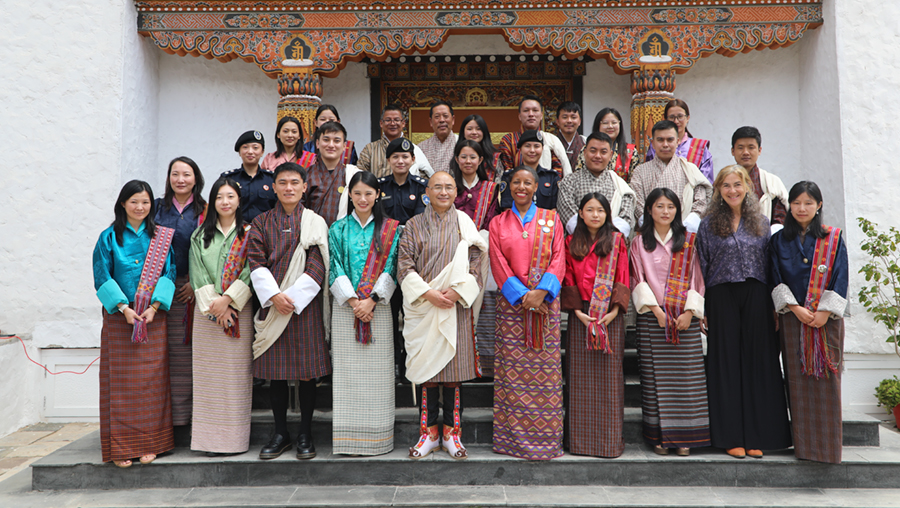
In an effort to enhance access to justice for children in conflict with the law, Jigme Singye Wangchuck School of Law initiated a ten-day Summer School focused on restorative justice. Restorative justice refers to helping individuals, particularly children to understand their mistakes, change behaviour and learn from the experience instead of being punished. The programme involves 20 participants from key service providers such as the Judiciary, the Office of the Attorney General, the Police, Nazhoen Lamtoen, and the PEMA Secretariat.
Before launching the summer school programme, the Jigme Singye Wangchuck School of Law conducted a needs assessment last year involving relevant stakeholders.
The assessment highlighted key issues such as gaps in the law, challenges in child justice procedures, and the need for increased awareness and advocacy.
It also emphasised the importance of effectively implementing the Child Care and Protection Act, particularly the alternative sentencing options available for children in conflict with the law, and their roles as victims and witnesses.
These issues will be discussed during the programme, finding a way forward.
Dema Lham, Faculty of Law under the JSW School of Law said “all these concepts such as the restorative justice, while it is not there in the law, we have the concepts and the principles that are being used at the court, and by the prosecutors and police. So, we are hoping that the programme would introduce or reintroduce these concepts to the participants, urging them to think about how they can implement these concepts.”
She added that the Child Care and Protection Act 2011 has a chapter on diversion and family group conferencing, a part of restorative justice, but lacked implementation.
“We lack implementation. I think many are not aware of these concepts. However, over the years, diversion was used not just by the police but also by prosecutors and Nazhoen Lamtoen. So, diversion is becoming more and more popular but there are other aspects such as legal questioning, legal advising and family group conferencing that are mentioned in the act that needs to be implemented.”
According to the JSW School of Law, this initiative represents a significant step towards fostering a more inclusive and effective justice system, ensuring that the rights and needs of children are prioritised.
UNICEF is partnering with JSW School of Law in organizing the programme. The Summer School programme will be an annual event henceforth.
Namgay Wangchuk, Paro
Edited by Tshering Zam









